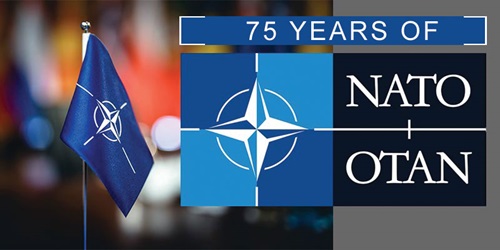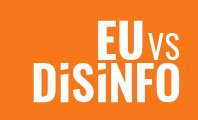|
TRANSLATE THIS ARTICLE
Integral World: Exploring Theories of Everything
An independent forum for a critical discussion of the integral philosophy of Ken Wilber
  Frank Visser, graduated as a psychologist of culture and religion, founded IntegralWorld in 1997. He worked as production manager for various publishing houses and as service manager for various internet companies and lives in Amsterdam. Books: Ken Wilber: Thought as Passion (SUNY, 2003), and The Corona Conspiracy: Combatting Disinformation about the Coronavirus (Kindle, 2020). Frank Visser, graduated as a psychologist of culture and religion, founded IntegralWorld in 1997. He worked as production manager for various publishing houses and as service manager for various internet companies and lives in Amsterdam. Books: Ken Wilber: Thought as Passion (SUNY, 2003), and The Corona Conspiracy: Combatting Disinformation about the Coronavirus (Kindle, 2020). NATO: Safety Umbrella or Strategic Blunder?Frank Visser
 REALIST REASONINGNATO exists 75 years, a feat that has been celebrated in various mainstream media, as proof that the organization provided peace and security for Europe. During my tour of alternative online media, commenting on this event, I came across a conversation between three geopolitical realists: "Jack Matlock—the last US Ambassador to the Soviet Union, Professor John Mearsheimer—the World's most renowned realist thinker, and Anatol Lieven—the Quincy Institute's finest journalist, are our guests. The panel was convened by the American Committee for US-Russia Accord and Catharina vanden Heuvel, the former Editor in Chief of the Nation Magazine together with Neutrality Studies." Their verdict was unanimous and harsh: NATO, and especially its recent expansion(s), were a "strategic blunder" of fateful proportions. Rather than promoting the security of the West, it increased the chance of a war with Russia, potentially ending in WWIII. Here's the video and its major sections:
Destroying Peace Since 1949. NATO: Anatomy of a Bad Idea | A. Lieven, J. Matlock & J. Mearsheimer
Now, all this will sound as music to Vladimir Putin's ears, for it represents exactly his view of the West, the balance of power and the role of Russia as a renewed global player. Yet, it has a logic of its own: shouldn't the West have opted for a peaceful relationship with Russia, instead of letting itself be guided by "Russophobia", resulting in a new Cold (or even Hot) War? Security ConcernsAs we know, Putin started his invasion out of "security concerns". A potential NATO membership of Ukraine would amount to crossing a red line, something he wanted to prevent with his pre-emptive strike. But didn't Ukraine in turn have security concerns of its own, as it tried to wrestle itself from under the yoke of Russian influence? The current war is fought on Ukrainian soil only, and Russia doesn't have to fear an invasion of equal magitude any time soon. And is the West really to blame here, or are there intrinsic dynamics within Russian society (and in the mind of Putin) that have increased our levels of insecurity in equal measure? Patriarch Kirill, like Putin a former KGB agent, has called this a "Holy War" and has recently ordered the complete alignment of Ukraine (and Belarus) within the Russian World. For ideologues such as Alexandr Dugin, the war is even apocalyptic, for it is a final war against Satan, embodied by the materialistic and nihilistic West.
Why Russian Orthodox Patriarch Kirill supports Putin's war in Ukraine | DW News
And talking about security concerns, what did the former Warsaw Pact countries feel when the Soviet Union annexed them with military force? Did they not have any security concerns? It is small wonder that when they joined NATO, in three waves so far, they were not invaded by US troops, but they literally begged to become NATO members. Makes a lot of sense to me. That is a big humiliation for Putin: none of these countries would want to run the risk to be subjugated by Russia (even if the Soviet Union had collapsed). Apart from that, yes, the balance of power in Europe has changed, and decidedly to the disadvantage of Russia. NATO has moved eastwards, in various steps, and has now reached the borders of Ukraine. That is a special case of course, historically and culturally the two countries go back a long way. Where it gets nasty is where Russia denies the independent existence of Ukraine (it is "Little Russia" after all). But the fact that Ukraine has chosen a more Western course is, again, a deep humiliation for Putin. They don't want him anymore. He can only establish his dominance by military force. What a population wants is never an issue for an invader, he will find rationalizations for why he rightfully "owns" that country. It is a clash of historical periods, where empires clash with individual countries. Propaganda Wars
When it comes to finding rationalizations, the world of war propaganda offers a wealth of opportunities. The EUvsDisinfo website, set up by "East Stratcom Task Force, a team of experts with a background mainly in communications, journalism, social sciences and Russian studies", offers a database of over 16.844(!) cases of disinformation related to the various world conflicts, with an emphasis on Eastern Europe. The query "NATO expansion" alone gives 179 hits, ranging from:
These tropes are familiar for anyone who has followed pro-Russian news outlets or official announcements. Now of course, in times of war, what propaganda is for one party is the highest truth for the enemy. It does, however show, that many claims made, on both sides, can be and have been disputed. Simplistic arguments should be avoided at all costs. Are the three realists of the above video guilty of such simplistic analysis? Do they ever think about what Ukrainians want with the future of their country? Are they as critical about Russia as they are of the West? I have some doubts here. What is interesting is that Anatol Lieven is a specialist in islamic terrorism, and he has commented on the recent ISIS-K attack on the Crocus theater in Moscow that both the West and Russia have lost sight of their priorities, i.e. fighting islamic terrorism.[1] As you may know, Russia was specifically warned up front by US intelligence of an upcoming attack at a public venue, but Putin dismissed it as "provocation". When the attack did happen, he was quick to point to Ukraine (and indirectly to the US) as the major culprit (even if the attackers were from ISIS-K). Group think infests everybody. Security Dilemma'sThe thesis of the three speakers that NATO has created its own monster, by expanding NATO and seeing Russia as a most dangerous enemy, seems naive in the extreme to me, given Putin's desire to again become a major playesr on the world scene, and restore his own orthodox-Christian empire by military means. Feelings of insecurity are hard to objectivize of course, and both Russia and the West might suffer from imaginary fears regarding their opponents. This is called the security dilemma (a variant of the prisoner's dilemma): In international relations, the security dilemma (also referred to as the spiral model) is when the increase in one state's security (such as increasing its military strength) leads other states to fear for their own security (because they do not know if the security-increasing state intends to use its growing military for offensive purposes).... The security dilemma is a key concept in international relations theory, in particular among realist scholars to explain how security-seeking states can end up in conflict. The three realists come tot the conclusion that it's best for Ukraine to give up all resistance to Russia, to grant Russia all the areas it has already annexed, or is in the process of doing so, and above all refuse NATO-membership to Ukraine, for that would surely herald WWIII. How is that not might-makes-right? How is that not a gross violation of international law? Those favorable to Russia's position in this conflicht often bring up the US as an example of a superpower that invents its own "rules-based-order", to by-pass international laws, but in this case, Russia fares no better. It blackmails the West with nuclear threats so it can restore and safeguard its own Russian Empire. NOTES
[1] Anatol Lieven, "Moscow attack proves Russia - and US - have lost sight of priorities", responsiblestatecraft.org, March 25, 2024
Comment Form is loading comments...
|